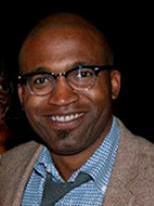Symposium Organizers (in reverse alphabetical order)
|
Ian Woodward is Professor at the Department of Marketing and Management, University of Southern Denmark, working in the ‘Consumption, culture and commerce’ research group. He has research interests in the cultural sociology of consumption and material culture, and in the cultural dimensions of cosmopolitanism, cosmopolitan spaces, cultural openness and boundary work. His critical survey of the field of material culture studies, Understanding Material Culture, was published by Sage in 2007. With Gavin Kendall and Zlatko Skrbis, he is co-author of The Sociology of Cosmopolitanism (Palgrave, 2009) and with Zlatko Skrbis he published Cosmopolitanism, Uses of the Idea (Sage/TCS, 2013). His research on consumption, materiality and cosmopolitanism has appeared in journals such as Theory, Culture and Society, The British Journal of Sociology, Ethnic and Racial Studies, Journal of Material Culture, Poetics, and The Sociological Review, as well as in numerous handbook collections. Most recently he published the co-authored book Vinyl, The Analogue Record in the Digital Age (Bloomsbury, 2015, with Dominik Bartmanski) and co-edited a book titled The Festivalization of Culture with Andy Bennett and Jodie Taylor (Ashgate, 2014). He holds a faculty adjunct position at Griffith University, Australia. |
|
Frederick Wherry is an economic and cultural sociologist who toggles between domestic and global investigations of money, value, and social life. Since 2008, he has published five books and a four volume encyclopedia. (Two more books are under contract, including the new Oxford Handbook of Consumption, edited with Ian Woodward.) He serves as vice-president of the Social Science History Association and will serve as president starting in November 2017. He is also chair-elect of the Economic Sociology Section of the American Sociological Association and past-chair of the Consumers and Consumption Section. He serves on the Policy Board of the Journal of Consumer Research and on the Advisory Board of Race in the Marketplace. At Yale he is co-director of the Center for Cultural Sociology. His work has explored how people use narratives, social ties, and dynamic performances to understand, contest, and transform the value of places and things. His work is now focused on financial inclusion and budgeting practices for low- and moderate-income consumers in the US and abroad. He is the co-editor (with Jennifer Lena and Greta Hsu) of the new book series at Stanford University Press: Culture and Economic Life. |
|
Michelle Weinberger is Associate Professor at the Medill School of Journalism, Media, Integrated Marketing Communications at Northwestern University. She earned her Ph.D. in marketing with a minor in cultural sociology at the University of Arizona. Her research focuses on two areas. First, she studies socio-cultural aspects of consumption. She analyzes how people use consumption to create and span symbolic boundaries between themselves and others, focusing on contexts such as collective rituals, gift giving, and experiential consumption. Second, her research focuses on the role of marketing communications in creating meaning for stakeholders and consumers and the effects of these communications at the firm and societal levels. Weinberger’s research has been published in the Journal of Consumer Research, European Journal of Marketing, International Journal of Advertising, and Journal of Advertising Research. Weinberger is serving as an elected council member for the American Sociological Association section on Consumers and Consumption, and she is an active member of the Association for Consumer Research, American Marketing Association, and Consumer Culture Theory Consortium. |
|
Craig J. Thompson is the Churchill Professor of Marketing at the University of Wisconsin-Madison, 4251 Grainger Hall, 975 University Avenue, Madison, WI 53706, [Contact info: 608-265-2033; craig.thompson@wisc.edu]. He holds an affiliate appointment at the University of Wisconsin’s School of Journalism & Mass Communication. His research on the cultural and ideological shaping of consumer identities, marketplace systems, and consumers’ appropriative uses of marketplace resources has appeared in leading consumer research and marketing journals. Thompson has been named a 2017 Fellow of the Association for Consumer Research. He is co-author of the book The Phenomenology of Everyday Life and co-editor of the volume Sustainable Lifestyles and the Quest for Plenitude. |
|
Juliet Schor is Professor of Sociology at Boston College and a member of the MacArthur Foundation Connected Learning Research Network. A graduate of Wesleyan University, Schor received her Ph.D. in economics at the University of Massachusetts. Before joining Boston College, she taught at Harvard University for 17 years. Schor’s books include The Overworked American, The Overspent American, Sustainable Lifestyles and the Quest for Plenitude, and True Wealth. Her scholarly articles have appeared in the Economic Journal, The Review of Economics and Statistics, World Development, Industrial Relations, Ecological Economics, The Journal of Industrial Ecology, The Journal of Consumer Research, The Annals of the American Academy of Political and Social Sciences, The Journal of Consumer Culture, and Poetics, among others. Schor is a former Guggenheim Fellow, Radcliffe Fellow, and Brookings Institution fellow, and in 2014 she received the American Sociological Association’s award for Public Understanding of Sociology. She has served as a consultant to the United Nations, at the World Institute for Development Economics Research, and to the United Nations Development Program. Schor is currently researching both non-profits and for profit platforms in the “sharing economy” as well as the structural determinants of carbon emissions. She is also writing on technology and the future of work. |
|
Marissa King is an Assistant Professor in the School of Management with a secondary appointment in Sociology. Professor King’s current research examines patterns of antidepressant, stimulant, and antipsychotic utilization. In general, her research analyzes the spatial and temporal dimensions of innovation and diffusion. To understand how large-scale phenomena arise from local behavior, she has studied cases ranging from the rise in autism prevalence during the past decade to the organizational foundations of the antislavery movement in the late 19th century. Of central interest is how regulatory environments shape diffusion processes. Professor King received her BA from Reed College and her PhD from Columbia University. Her research appears in journals such as American Sociological Review, American Journal of Sociology, and Administrative Science Quarterly. |
Participants (in alphabetical order)
|
Jeffrey Alexander is the Lillian Chavenson Saden Professor of Sociology at Yale University, founder and co-director of Yale’s Center for Cultural Sociology, and co-editor of The American Journal of Cultural Sociology. A social theorist whose early work challenged the anti-cultural reductionism of classical and modern sociology, Alexander has worked with generations of students and colleagues to create a “strong program” in cultural sociology. Synthesizing late Durkheim with semiotics, poststructuralism, and cultural anthropology, he has conceptualized, not only models of deep cultural structure, but theories of cultural trauma, social performance, and material iconicity. In monographs and essays over the last two decades, Alexander has also developed ”civil sphere theory,” a macro-sociological model of democracy and the forces that can undermine it. He is currently organizing a series of conference/book projects, The Civil Sphere in Latin America, The Civil Sphere in East Asia, and The Civil Sphere and Radicalism, volumes from which will be published by Cambridge University Press. Alexander’s most recent books are Obama Power (2013, Polity, with B. Jaworsky), The Crisis of Journalism Reconsidered: Democratic Culture, Professional Codes, Digital Future (2016, Cambridge UP, ed. with E. Breese and M. Luengo), and The Drama of Social Life (forthcoming May, 2017, with Polity). |
|
Dr. Eric Arnould is Visiting Professor of Marketing at the Aalto University Business School and Adjunct Professor at EMLYON France. He formerly held a social science chair in the Danish Institute for Advanced Studies (DIAS). He has been on the faculty of universities in four European countries and in several US states. He has pursued a career in applied social science since receiving his BA in 1973 from Bard College, receiving a PhD in anthropology from the University of Arizona in 1982. Ethnographic research in West Africa both basic and applied provide the foundation for his approach to contemporary market mediated society. Marcel Mauss and Marshall Sahlins are two of his scholarly role models, although his intellectual debts are many. Eric’s research on consumer culture, cultural marketing strategy, qualitative research methods, services marketing and marketing and development appears in over 90 articles and chapters in major social science and managerial periodicals and books. His current interests include collective consumer creativity, human branding, sustainable business practice, visual representations, and digital mobility. He is at work on a collective text on consumer culture theory. |
|
Melissa Aronczyk is Associate Professor of Media Studies in the School of Communication and Information at Rutgers University. Her research examines questions at the intersection of media, politics and identity. She is the author of Branding the Nation: The Global Business of National Identity (Oxford, 2013) and the co-editor of Blowing Up the Brand: Critical Perspectives on Promotional Culture. Current research includes a project funded by the National Science Foundation on the role of strategic information and influence campaigns on public opinion and public policy in the United States. She is a faculty fellow with the Center for Cultural Sociology at Yale University. |
|
Nina Bandelj is Professor of Sociology, Equity Advisor to Dean in Social Sciences and Co-Director of Center for Organizational Research at the University of California, Irvine. Her research examines the social, cultural and emotional influences on economy, determinants and consequences of globalization, and social change in postsocialist Europe. Her articles have been published in the American Sociological Review, Social Forces, Theory and Society, and Socio-Economic Review, among others. Her books include From Communists to Foreign Capitalists: The Social Foundations of Foreign Direct Investment in Postsocialist Europe (2008), Economy and State: A Sociological Perspective (2010, with Elizabeth Sowers), Economic Sociology of Work (2009), The Cultural Wealth of Nations (2011, with Frederick F. Wherry), Socialism Vanquished, Socialism Challenged: Eastern Europe and China, 1989-2009 (2012, with Dorothy Solinger) and Money Talks: Explaining How Money Really Works (2017, with Frederick F. Wherry and Viviana A. Zelizer). Bandelj serves as one of the editors of Socio-Economic Review, is past Chair of Economic Sociology Section of the ASA, and on Executive Councils of the ASA, Society for Advancement of Socio-Economics and RC09 of International Sociological Association. |
|
Shyon Baumann is Associate Professor of Sociology at the University of Toronto. His research centres on the concepts of evaluation, tastes, legitimacy, status, cultural schemas, and inequality. In the past he has investigated these questions in the cases of the Hollywood fim industry, Canadian television advertising, and gourmet food. He is currently engaged in a collaborative project with Josée Johnston on the political dimensions of food consumption and together they are beginning to investigate the ways that consumers think about buying and eating different kinds of meat. He is also currently studying changes over time in the news framing of economic inequality, with a focus on a comparison between Canada and the United States. He is Co-Editor-in-Chief of Poetics: Journal of Empirical Research on Culture, Media, and the Arts for 2015-2017. |
|
Dan Cook is Professor and founding faculty of Childhood Studies at Rutgers University, Camden, New Jersey, USA whose work focuses on moral configurations of childhood and the child vis-à-vis commercial cultural fields. He is author of The Commodification of Childhood, editor of Symbolic Childhood and Lived Experiences of Public Consumption, and co-editor (with John Wall) of Children and Armed Conflict. He is co-editor (with Spyros Spyrou and Rachel Burman) of the forthcoming Reimagining Childhood Studies (Bloomsbury). Along with Erica Burman, University of Manchester, he is co-editing the SAGE Encyclopedia of Children and Childhood Studies, which is expected to be published in 2018. Author of a number of articles and book chapters on childhood theory, consumer society, play, leisure and urban culture, Cook also serves as co-editor for the journal Childhood A journal of global child research (Sage). |
|
Ravi Dhar is the George Rogers Clark Professor of Management and Marketing and director of the Center for Customer Insights at the Yale School of Management. He also has an affiliated appointment as professor of psychology in the Department of Psychology, Yale University. He is an expert in consumer behavior and branding, marketing management, and marketing strategy and a leader in bringing psychological insights to the study of consumer decision-making. His research focuses on using psychological principles, such as limited self-control and cognitive limitations in processing information, to investigate fundamental aspects about the formation of consumer preferences and goals in order to understand consumer behavior in the marketplace. |
|
Amber Epp is an Associate Professor of Marketing at the University of Wisconsin-Madison’s School of Business. Her research focuses on understanding collective phenomenon including the interplay of family and relational identities, collective goals, network agency, and group decision-making. Her work has been published in the Journal of Consumer Research and the Journal of Marketing, and she has co-authored book chapters on qualitative data analysis, family consumption behavior, and assemblage theory. Professor Epp’s dissertation received the inaugural Sidney J. Levy Award for outstanding Consumer Culture Theory research, and her research has been funded by the Marketing Science Institute. She also serves on the editorial review board for Journal of Marketing and Journal of Consumer Research and is a member of the JCR Policy Board. Professor Epp currently teaches Consumer Behavior for undergraduates and Qualitative Data Insights in the MBA program. In addition, she has taught Services Marketing, Marketing Management, and Honors Introductory Marketing. |
|
Markus Giesler is an associate professor of marketing at the Schulich School of Business at York University. Building on a strong foundation in sociological theories and methods, he examines the role of culture in the formation of markets and the customer experience. His research has been published in the Journal of Consumer Research and the Journal of Marketing and featured in The New York Times, Time Magazine, BusinessWeek, Wired, The Financial Times and other news media. He serves on the editorial review boards for the Journal of Marketing, the Journal of Consumer Research, Consumption, Markets and Culture, and Business & Society, and as chair of Schulich’s marketing department. He has been named “one of the best recognized experts studying high-technology consumption” by Wired, one of “the young business school star professors on the rise” by Fortune, and one of “the 40 most outstanding business profs under 40 in the world” by Poets & Quants. |
|
Sonya A. Grier is a Professor of Marketing at the Kogod School of Business, American University. Dr. Grier conducts interdisciplinary research on topics related to the social impact of targeted marketing activities (both commercial and social), with a focus on race. She has published her research in leading marketing, public health, health policy and psychology journals and also created two award winning documentary films. Dr. Grier currently serves on the Editorial Board for the Journal of Public Policy & Marketing, as the Director of Food Marketing Research for the African-American Collaborative Obesity Research Network (AACORN) and is a member of the Institute of Medicine Food Forum. She is currently developing an international transdisciplinary research network and research forum focused on issues of race in the marketplace (rimnetwork.net). Prior to joining American University, she was a member of the first cohort of the Robert Wood Johnson Foundation Health & Society Scholar program at the University of Pennsylvania. Dr. Grier also spent two years as an in-house consultant at the Federal Trade Commission, where she provided consumer research expertise as part of a presidentially mandated team examining the target marketing of violent entertainment to American youth. She also has practical industry experience in market research, brand management, and marketing consulting. Dr. Grier teaches courses in Marketing for Social Change and Integrated Marketing Communication to undergraduate and graduate students. She has also written multiple teaching cases, including one on The PhD Project, which looks to increase faculty diversity in business schools. Dr. Grier received her Ph.D. in Marketing, with a minor in Social Psychology, from Northwestern University in 1996 and also has an MBA from the J.L. Kellogg Graduate School of Management, Northwestern University. Her undergraduate degree is also from Northwestern University, with a major in Political Science. She is originally from Detroit, Michigan. |
|
Geraldine Rosa Henderson (“Gerri”) is Associate Professor in the Marketing Department of the Quinlan School of Business of Loyola University Chicago. Her primary areas of research include branding, marketplace diversity, digital marketing, and consumer networks (cognitive and social). She has authored over 50 publications in outlets such as the Journal of Business Research, the Journal of Advertising, the Journal of Public Policy & Marketing, International Journal of Research in Marketing and the European Journal of Operational Research. She received her MBA and Ph.D. in marketing from the Kellogg Graduate School of Management at Northwestern University and her B.S. in Electrical Engineering from Purdue University. Prior to pursuing her Ph.D., she worked for several years at IBM in Relationship Marketing (specializing in the Healthcare, Insurance, and Pharmaceutical Industries) and briefly in Brand Management at Kraft Foods. Dr. Henderson serves or has served on several corporate and nonprofit boards including the American Marketing Association, the National Black MBA Association, the National Society of Black Engineers, and the Advisory Council of the Association for Consumer Research, She serves or has served on the Editorial Review Board for several journals including the Journal of Public Policy & Marketing, the International Journal of Advertising, and the Journal of Current Issues and Research in Advertising. She has also served as a special issue editor for the Journal of Public Policy and Marketing and for the Journal of Business Research. She considers herself a “Doctorpreneur” since she often serves as a marketing consultant and a research moderator. |
|
Omar Lizardo is a Professor of Sociology at the University of Notre Dame, where he has been a faculty member for the last ten years after completing his PhD at the University of Arizona in 2006. His research deals with various topics in cultural sociology, network science, social psychology, and cognitive social science. His work has appeared in such general interest venues as American Sociological Review, Theory and Society, Poetics, Sociological Science, Socius, Sociological Theory, and Social Forces. With Jessica Collett, he was the guest-editor of the June 2014 special issue of Social Psychology Quarterly dedicated to advancing the connections between Social Psychology and Cultural Sociology. He is currently a member of the editorial advisory board of more than six journals and, with Rory McVeigh and Sarah Mustillo, he is the one of the current co-editors of American Sociological Review. He has also been the recipient of the 2013 Lewis Coser Award for Theoretical Agenda Setting from the American Sociological Association Section on Theory, the winner of the 2008 Clifford Geertz Prize for Best Article from the American Sociological Association Section on Culture, and the co-winner (with Robert Fishman) of the Charles Tilly Best Article Award from the American Sociological Association’s section on Comparative Historical Sociology. |
|
Jennifer Smith Maguire is Associate Professor in Cultural Production and Consumption in the University of Leicester School of Business. Jennifer is a sociologist of consumption (PhD, City University of New York Graduate Center), whose research focuses on the construction of markets, tastes and value. Major areas of work include cultural intermediaries as taste makers; the production and consumption of provenance and authenticity as forms of value; and the construction of new regimes of good taste in emerging markets. Her work has been published in such journals as Journal of Consumer Culture, Consumption, Markets & Culture, and the International Journal of Cultural Studies, she is the co-editor of The Cultural Intermediaries Reader (Sage, 2014), and author of Fit for Consumption: Sociology and the Business of Fitness (Routledge, 2008). She leads the Cultural Production and Consumption research strand of CAMEo, University of Leicester’s Research Institute for Cultural and Media Economies. |
|
Professor Mora’s research focuses mainly on questions of racial and ethnic categorization, organizations, and immigration. Her book, Making HIspanics, was published in 2014 by the University of Chicago Press and provides a socio-historical account of the rise of the “Hispanic/Latino” panethnic category in the United States. She is currently working on two new projects. The first examines how national Latino political organizations in the United States and Spain develop and implement panethnic agendas. The second assesses how immigration changes the discourse about race and medicine. In addition, Professor Mora’s research focuses on immigrant religion and political mobilization, as well as on Pentecostalism in Latin America. Her work has been published in venues like the American Sociological Review, Annual Review of Sociology, Ethnic and Racial Studies, Latino Studies, and Poetics. |
|
Albert Muñiz is a Professor of Marketing at DePaul University in Chicago, IL. His research centers on consumers and brands, including consumer generated content and consumption communities. Professor Muñiz has published in Business Horizons, the European Journal of Marketing, the Journal of Advertising, the Journal of Consumer Research, the Journal of Interactive Marketing, the Journal of Marketing, the Journal of Retailing, the Journal of Strategic Marketing, MIT Sloan Management Review and Research-Technology Management. He is on the editorial review board for the Journal of Consumer Research and the Journal of Marketing. His teaching interests include consumer behavior, consumer culture and brand culture. Professor Muñiz received his B.S., M.S. and Ph.D. from the University of Illinois, Urbana-Champaign. Before coming to DePaul, he taught at the University of California at Berkeley. |
|
Cassi L. Pittman is an Assistant Professor of Sociology at Case Western Reserve University in Cleveland, OH. Dr. Pittman’s scholarship examines the underlying social and cultural processes that affect racial minorities’ economic behavior. Utilizing qualitative methods her work focuses on lived experiences of African American consumers. She has investigated African Americans’ experiences in the consumer market, as well as the mortgage market. In her upcoming book tentatively titled Black Privilege she paints a picture of the everyday lives of middle-class African-Americans, revealing how both race and class affect their reality and inform their consumption preferences as displayed at work, in their neighborhoods, and at sites of leisure. Additionally, she has published research on middle-class blacks’ attitudes about social mobility and racial progress after the election of President Barack Obama. At present she is initiating a new research project that investigates the ways that race, class, and lifestyle preferences inform considerations of neighborhood desirably, focusing specifically on the residents of a predominantly black middle-class neighborhood in Cleveland, Ohio. Dr. Pittman received her B.A. from the University of Pennsylvania and her Ph.D. from Harvard University. |
|
Allison Pugh is Associate Professor of Sociology at the University of Virginia and, this year, is serving as a resident fellow at the Center for Advanced Study in the Behavioral Sciences at Stanford University, as well as a fellow of the American Council of Learned Societies. Her research and teaching focus on the collisions of work and intimacy, and her latest projects include 1) an investigation of the rationalization of relational labor and 2) the impact of social and legal recognition on multi-parent families. She recently published The Tumbleweed Society: Working and Caring in an Age of Insecurity (Oxford 2015), as well as an edited volume entitled Beyond the Cubicle: Job Insecurity, Intimacy and the Flexible Self (Oxford 2016). Her first book, Longing and Belonging: Parents, Children, and Consumer Culture (University of California Press 2009), is about how children and parents manage the commercialization of childhood. It won the 2010 William J. Goode award and the 2010 Distinguished Contribution from the ASA section on children and youth. |
|
Melanie Wallendorf is McClelland Professor of Marketing in the Eller College of Management, and Professor of Sociology in the College of Social and Behavioral Sciences at The University of Arizona. She completed her M.S. in Sociology and her Ph.D. in Marketing at the University of Pittsburgh. She has published extensively on the socio-cultural aspects of consumption. Her published research includes papers on consumption as an expression of normative political ideology, the role of consumption during collective rituals, the role of possessions in constituting social classes and ethnic groups, the meanings of favorite possessions and collections, and the processes that define particular possessions as sacred or profane. In 1992, she and co-authors Russell Belk and John F. Sherry, Jr. won the Association for Consumer Research Award for the Best Article in the Journal of Consumer Research for their article “The Sacred and Profane in Consumer Behavior: Theodicy on the Odyssey.” Two other articles that she co-authored were finalists for that award in other years. Professor Wallendorf’s research is highly-cited: Web of Science indicates one of her articles has over 500 citations, and six others each have over 100 citations. Her research has been featured in The Wall Street Journal, The Washington Post, The New York Times, American Demographics, Fortune and on Voice of America and WABC National Radio in New York. It has been funded by the Marketing Science Institute, the Arizona Disease Control Research Commission of the State of Arizona, and the Office of Earth Science at NASA. Her current research focuses on gendered access to leisure time and space, the moral reasoning undergirding participative pricing, and patterns in people’s life course and their possessions. Professor Wallendorf was the American Sociological Association representative to the Journal of Consumer Research Policy Board from 1998 - 2007. She also served as the Treasurer and as the Annual Conference Co-Chair for the Association of Consumer Research, and as Associate Editor of the Journal of Consumer Research. |























